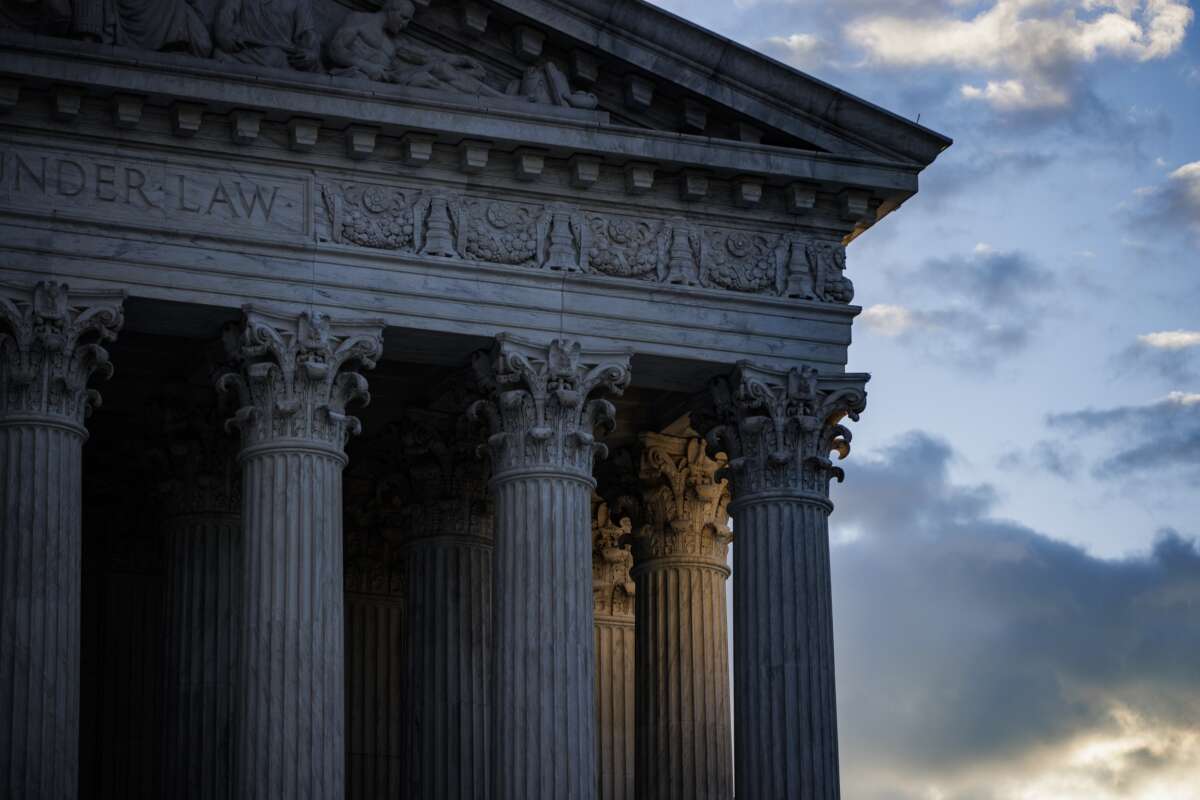Support justice-driven, accurate and transparent news — make a quick donation to Truthout today!
The U.S. Supreme Court could soon issue a decision on whether state and local governments can legally impose bans on assault weapons within their jurisdictions.
Ten states in total have bans on assault weapons and/or high capacity magazines. But a Supreme Court ruling on a case challenging Illinois’s ban — which could, legal observers say, be handed down any day now — has the potential to render those laws unenforceable.
The case in question, National Association for Gun Rights v. City of Naperville, argues that the state of Illinois cannot enforce a ban on owning assault weapons. The case also challenges the city of Naperville’s ordinance on assault weapons, arguing that both statutes are in direct violation of the Second Amendment to the Constitution.
The case involves the gun rights organization as well as a gun shop owner, who has alleged that his sales are being negatively impacted by the bans.
The case could be decided on the Court’s “shadow docket” — an arena of the Supreme Court that generally rules on procedural matters but which, in recent years, has been used by conservative justices to impose new rules regarding critical political matters before an actual opinion on the issue at hand is released. One recent example of the Court using the shadow docket is when justices issued an order — long before publishing an opinion on abortion in Dobbs v. Jackson — blocking precedent protecting reproductive rights that was established in Roe v. Wade.
There are indications that justices could move forward on a shadow docket decision in Naperville sometime soon. Justice Amy Coney Barrett, who manages cases originating from the Midwest for the Court, requested briefs from the parties involved in the case last week, suggesting that she and the other justices could rule on the matter in the near future.
Illinois submitted its brief to the Court on Monday, arguing that the state law banning individuals from owning assault weapons is consistent with the Constitution.
“By prohibiting the manufacture and sale of weapons and magazines increasingly used in the deadliest mass shootings, the Act comfortably fits within this pattern of regulation in response to new forms of violent crime perpetrated with technologically advanced weapons,” Illinois Solicitor General Jane Elinor Notz wrote in the brief.
Some observers of the Supreme Court say there is reason to believe that the conservative bloc of justices, who have shifted the Court rightward in recent years, could impose a nationwide ban on laws prohibiting the ownership of assault weapons and high capacity magazines. Vox’s senior correspondent Ian Millhiser, who focuses on the U.S. judicial system, noted that Justice Brett Kavanaugh ruled on a similar case as an appellate judge in 2011, dissenting with a majority opinion that found assault weapon bans to be constitutional.
Precedent established in D.C. v. Heller — the 2008 Supreme Court case that, for the first time ever, declared a personal right to own weapons through the Second Amendment — included a statement by the late Justice Antonin Scalia, who wrote that the Court’s ruling wasn’t meant to be interpreted as saying that local governments couldn’t impose any restrictions on gun ownership.
“Like most rights, the Second Amendment right is not unlimited. It is not a right to keep and carry any weapon whatsoever in any manner whatsoever and for whatever purpose,” Scalia wrote, adding that the decision in Heller shouldn’t “cast doubt on longstanding prohibitions” that exist on guns — including on “dangerous and unusual weapons.”
As Millhiser noted, Kavanaugh has previously suggested, in his dissenting rulings, that assault weapons don’t fit that category.
“If [Kavanaugh] still believes semiautomatic rifles aren’t particularly ‘dangerous and unusual,’ he is well-positioned to turn the opinion he wrote in 2011 into law,” Millhiser wrote.
Such a ruling would be in direct opposition to what a majority of Americans believe regarding assault weapons. According to a Fox News poll published last month, for example, 61 percent of Americans say that there should be a nationwide ban on assault weapons.
Press freedom is under attack
As Trump cracks down on political speech, independent media is increasingly necessary.
Truthout produces reporting you won’t see in the mainstream: journalism from the frontlines of global conflict, interviews with grassroots movement leaders, high-quality legal analysis and more.
Our work is possible thanks to reader support. Help Truthout catalyze change and social justice — make a tax-deductible monthly or one-time donation today.
